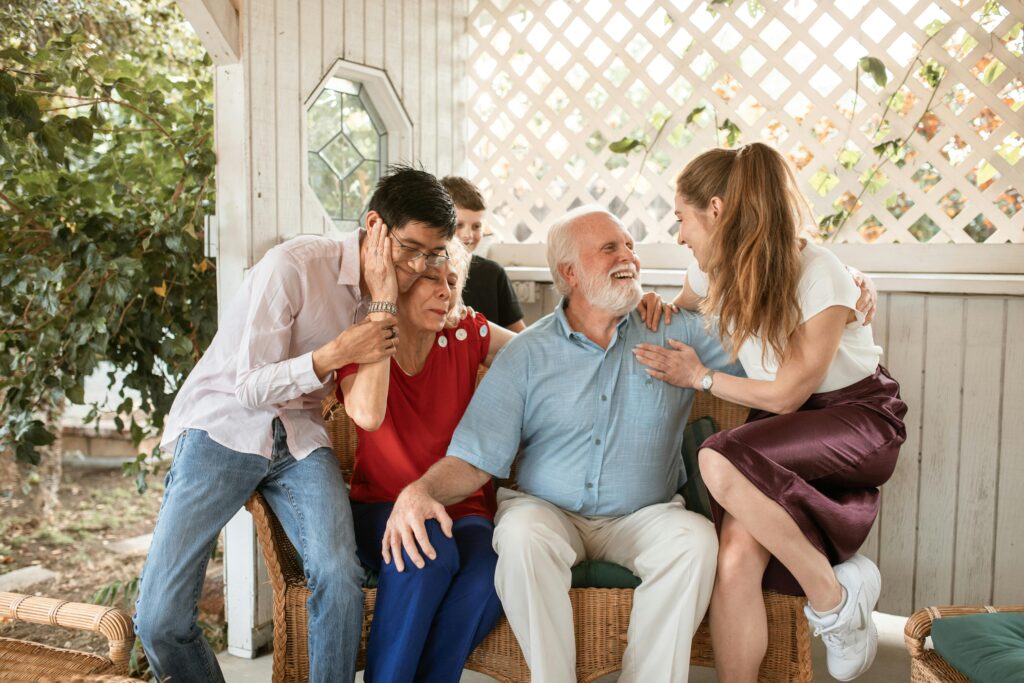Introduction
Community engagement is a critical factor in the health and well-being of people and societies. Community development refers to people who work together collectively, weaving their efforts in solving common problems and the formation of solutions that can lead towards a better quality of life for everyone. Community engagement may contribute significantly to the mental and health well-being of its constituents; having an impact on critical indicators for individual as well as public health, such factors include mental illness prevalence rates, healthcare access within communities served by local radio stations or improved social cohesion. Insight into how community engagement and health are linked is necessary to creating opportunities that can help build healthier, more vibrant communities for all San Diegans.

Community Engagement and Health
Community engagement affects health via a number of mechanisms. Engaging with your community builds social networks, which offer emotional support that can reduce stress and improve mental health. This type of social interaction can keep people from feeling so alone and more in touch with the world, which is very important for mental health.
Making connections leads to awareness of health issues and resources. There are community-led health programs that can serve as an educational purpose i.e nutrition, exercise, disease prevention. Offering such programs, will not only increase awareness among its patients but also make more aware healthier choices towards their lifestyle which in turn leads to good outcome for physical health.
Mental Health Just, other health also just, Benefits of Engagement with the Community
Feeling like you belong and having something to live for is one of the biggest predictors when it comes mental health. The point to make here is, by participating in community activities people feel a sense of purpose because they are contributing towards something beyond than them. Belonging helps to combat loneliness and depression, two all too common mental health issues.
It’s also a good form of therapy to volunteer and be part of community events. These activities, including some level of teamwork and cooperation will help your confidence rise while you learn that it is a restful way to distress. Research has shown that individuals who identified more strongly with their community and not solely as individual free agents were much less susceptible to anxiety disorders.
Physical health and social participation
Being part of a community also has beneficial effects on physical health. So much of the time community activities involve moving our bodies, weather it be helping out with a local clean-up or community gardening and taking different classes outside. These activities help you stay active which is the most essential part to keep your body weight in check, reduce risk of getting a chronic disease and improving health broadly.
Community engagement also helps access to health services and resources. It helps community groups advocate of better local health care but also organise to provide rides for seniors who cannot drive themselves, not only low cost or no charge general medical screening at places like Walmart and the farmers market. All this enables resources to be accessed and community dwellers receive the care they require in order not only remain good health.
Public Health Care and Social Well-being
Community involvement nurtures social health, defined as the ability to relate with other people properly and adjust effectively in different kinds of situations when dealing with others. Community is beneficial for one as you have friends around to lend a helping hand when needed. It encourages trust and cooperation, the basis for a healthy society
It also works as a way to grow communication and empathy skills. People exposed to a variety of cultural traditions can come to accept and respect diverse viewpoints. This knowledge can lead to decreased social tensions and a greater community feel in general, not only promoting higher levels of connected but better social health overall.
The Impact of Health on Community Involvement
Community engagement has a well-established connection to health, but this relationship is reciprocal; health can impact how involved an individual is in their local community. Ill-health can reduce access to and participation in community life, for example through physical impairment or stigma regarding certain health conditions.
Community engagement may be challenging when context creates barriers like chronic illnesses or mental health disorders, disabilities. Those with these illnesses may already feel alone or unsupported, even in their health concerns. Communities can become more inclusive and capable of engaging all members by supporting individuals with health challenges to participate, engage, and benefit from community activity.
Approaches to Improving Community Engagement in Health
In turn, it is critical to employ strategies that attract all individuals within a community in order to derive the health benefits of participation. Let me give you some good tips to help tide your over in the meantime.
Limitless Opportunities Heather said she wants the organisation to create programs for many, including those with physical challenges-live in a group home … have mental health issues… live at an Assisted Living Facility. With accessibility and inclusive being a root of this experience it will compel more people to get started.
Increasing Health Education: Communities must provide health education to educate people about what they can do themselves if they would like to stay healthy. That might mean workshops on nutrition, exercise or mental health, disease prevention etc.
Support Networks: Foster the creation of support groups and social clubs where people can connect with one another. Through these networks, people can receive emotional and practical support, especially to those who struggle with health.
Put Technology to Work: Employ digital tools that convene local voices, even if they are not physically present. Online Forums, Virtual Events and Social Media Groups to remain engaged and supported.
Encouragement for volunteers : It would help people to get encouragement with volunteering in the name of doing good and at the same time making their body healthy. Not only does volunteering lead to better mental and physical health, but giving back also brings a sense of purpose while building healthier communities.
Conclusion
Community engagement is one of the more powerful levers we can pull to improve health and well being. Community engagement has been associated with improved mental, physical and social health through forging of social connections, provision for health education at the community level and encouragement towards increased physical activity. Still, it is important to also recount that health information can be crippling, making your ability to serve the community limited. In order to build healthier and more resilient communities, inclusive approaches should be employed that enable engagement from all community members of any health status. In fact, this is the process through which we democratise the benefits of community engagement and make them universal thus creating a more resilient society.



